ANN ARBOR, MI – The William Davidson Institute (WDI) at the University of Michigan is hosting a group of 12 engineering faculty from six different universities and research institutes in the state of Chihuahua, Mexico, as part of a study visit to Michigan this week. The visit is part of the Zero-Emissions Vehicle (ZEV) academic partnership implemented by WDI with support from the U.S. Mission Mexico Public Diplomacy Section.
The shift to ZEVs means educational and training institutions around the world must adapt their curricula to better respond to the evolving talent needs of the automotive industry. Educators will need to develop new courses in emerging areas, update lab equipment and facilities for hands-on training and testing, and identify new research areas, WDI research shows.
With ZEV production growing across North America and around the globe and with many new players entering the industry, preparing the workforce that will enable this transition becomes crucial. In the state of Chihuahua, Mexico, which has a robust automotive manufacturing industry, several universities are interested in integrating ZEV-related content into existing courses and creating new ones, launching new areas of research, and establishing ZEV innovation centers to propel the state toward an electric future. Partnerships are vital for educational institutions in reaching these goals.
“We recognize that the ZEV industry requires a new generation of workers with different skills and competencies,” said Fernando Alba, Undersecretary for Energy, Mining and Industry of the State of Chihuahua. “Just as we provide the talent for the traditional automotive industry, we will be well positioned to support this shift to electrification in Chihuahua, a region known for its strong manufacturing base and skilled workforce. The ZEV academic partnership and our broader engagement with WDI are helping us access world-class expertise from Michigan and develop new academic and business collaborations.”
Within academic institutions, this shift is being felt in the classrooms, in the labs, and beyond—and key to the success of new endeavors is the faculty teaching, researching, and innovating in this space.
Before arriving in Michigan, ZEV program faculty participants completed a virtual program over the course of six months, which was designed by WDI and provided an overview of Michigan’s approach to developing ZEV talent, highlighting programs and initiatives from U-M and other players across the state.
The visit is providing an immersive experience for faculty by sharing teaching and research related to ZEVs in Michigan, with the goals of deepening their knowledge and seeding future collaborations in this area. Throughout the week, the group will tour the University of Michigan’s Battery and Auto Labs, the Ford Robotics Building, Mcity, and other U-M engineering facilities. The visiting faculty also will meet with students, including teams and clubs such as the U-M Solar Car team, U-M Electric Boat, Michigan Mars Rover team, Supermileage club and Michigan Climate Ventures.
“Universities and other educational institutions working to update their existing curricula or create new programs to develop ZEV talent will need faculty with the knowledge to teach this new content, said Diana E. Páez, Senior Director, Energy & Mobility. “This means that upskilling is not limited to industry—academia too must invest in preparing educators and researchers to teach and innovate around ZEV technology.”
Beyond U-M, the group also has the opportunity to learn about ZEV training programs offered at Washtenaw Community College and to connect with faculty and experts at Macomb Community College and tour its ZEV lab. Finally, the group is connecting with ZEV startups in Detroit and visiting Newlab, a hub for entrepreneurship and mobility innovation in the city.
Capping off the study visit, the participants are completing a technical training on vehicle electrification and battery systems taught by U-M Engineering faculty and organized by Nexus at U-M Engineering, delving deeper into the most important aspects of these technologies and acquiring relevant expertise and sample lessons to incorporate in their own teaching.
Equipped with enhanced technical knowledge on these topics and with the insights gleaned from their week in Michigan, faculty participants will next develop proposals for new project ideas or collaborations within and across their universities and with interested Michigan institutions. The proposals will focus on training, research or innovation related to ZEVs.
Participating engineering faculty hail from the Universidad Autónoma de Ciudad Juárez, Universidad Autónoma de Chihuahua, Universidad Politécnica de Chihuahua, Instituto Tecnológico de Estudios Superiores de Monterrey Campus Chihuahua, Centro de Investigación en Materiales Avanzados, and Instituto Tecnológico de Ciudad Juárez.
The ZEV academic partnership builds on WDI’s ongoing collaboration with the Secretaría de Innovación y Desarrollo Económico (SIDE) and Instituto de Innovación y Competitividad (I2C) from the State of Chihuahua to help a wide range of stakeholders navigate the transition to electrification in the automotive industry.
By Diana Páez and Dana Gorodetsky
Autonomous, connected, electric and shared. These tsunami-like trends — which go by the acronym ACES — are reshaping the landscape of mobility.
Of these trends, “electric” is arguably one of the most advanced, in low- and middle-income countries (LMICs) and developed markets alike, and is the primary focus of our mobility-related work on the Energy team at WDI. We analyze opportunities and enablers related to the transition to electric mobility (e-mobility) and help stakeholders spot and tap into new opportunities to play a role in this exciting and quickly evolving space.
In our discussions with companies and entrepreneurs, academia, government, and other actors involved in e-mobility around the world, most are eager for new ways to collaborate with the ultimate goal of spurring innovation in this space. In this context, the role of mobility innovation hubs — as platforms for collaboration, conveners or enablers — is worthy of study and analysis to help inform the successful evolution of existing mobility innovation hubs and the design of others.
In a new report we’re publishing today, Mobility Innovation Hubs: Catalyzing Future Mobility, we examine six such hubs around the world, looking at their key features and business models, and drawing insights about the types of benefits and costs associated with different models.
FIGURE 1:
Mobility Innovation Hubs featured in the report
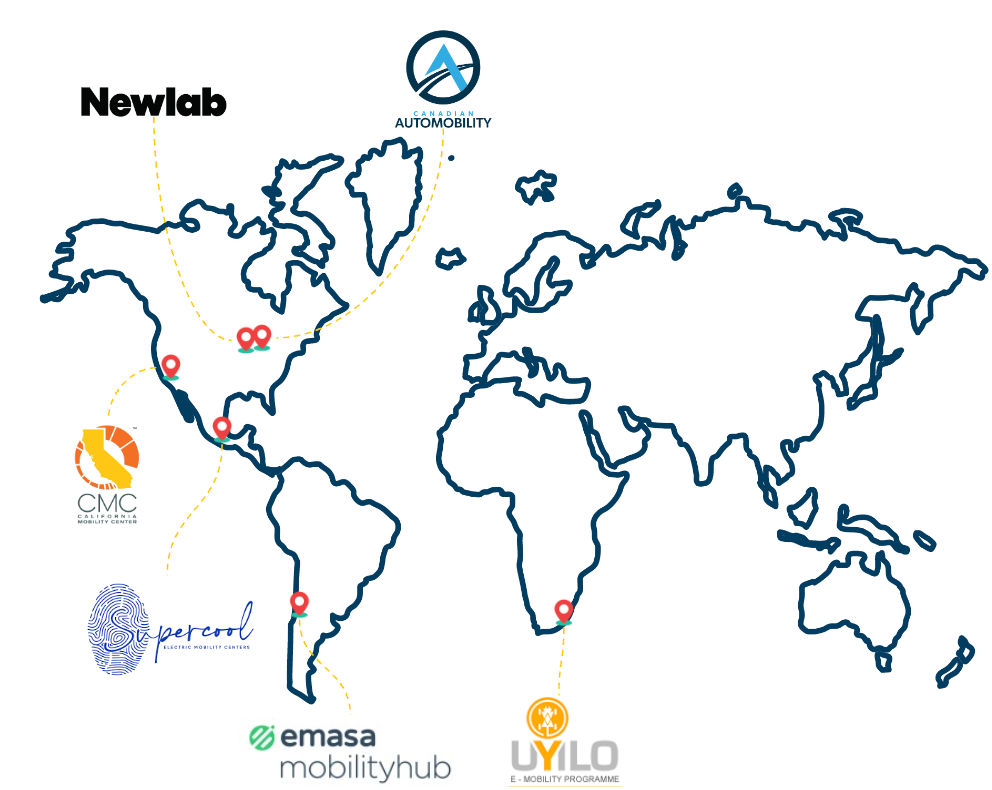
Actors in an ecosystem all have roles to play in managing changes brought about by the trend toward e-mobility. But as with any major transition, new players can help spur innovation. Mobility innovation hubs can bring new thinking, new resources, and new ways of working to take advantage of new opportunities. These hubs come in different forms depending on their specific goals and the context in which they operate, but have some features in common. Broadly speaking, they exist to bring together and support players in their ecosystem such as entrepreneurs, small and large businesses, investors, government, academia, others) to advance shared goals in the areas of future mobility. They may be standalone non-profit or for-profit organizations or partnerships, and they engage in a variety of activities depending on their audience and goals. Among the hubs we feature, business and technology support for commercialization and scale up of new mobility solutions are among the most popular services; these include consulting services, ramp-up manufacturing facilities and equipment, testing environments for new products or services, and product showrooms. Several also offer co-working space for entrepreneurs and companies, training opportunities, and events for industry members and the general public.
Mobility innovation hubs are carving out new spaces and roles in the ecosystems in which they operate. While not all hubs engage with all types of players in an ecosystem, they can provide value to all, as we note below. These hubs can also support other aspects of an ecosystem such as the infrastructure, policy framework and workforce. On the issue of infrastructure for example, hubs provide space and equipment to support companies and strengthen networks through convenings. Hubs can also improve public-private sector collaboration by bringing together government and companies, thereby supporting policy frameworks. And with respect to the local workforce, hubs also help upskill and reskill the local talent and build talent pipelines.
FIGURE 2:
Value that hubs can provide in their ecosystem

In our report we share details of the six hubs examined in Detroit, US; Windsor, Canada; Sacramento, US; Puebla, Mexico; Santiago, Chile; and Eastern Cape, South Africa. This will help you understand what type of initial investment is needed for such an endeavor, what kinds of revenue sources can support hub operations, and the range of services that can be provided by a hub. We also share key insights and takeaways for those interested in establishing a new hub in their area, including how to determine the value proposition and how to position it in the local ecosystem. At the same time, we recognize that it may not be feasible or beneficial to create a new organization in every context, so we also include recommendations for actions that existing players can take to support their local ecosystem for e-mobility.
We look forward to following the evolution of the hubs featured in this report and invite you to reach out if you are part of a different hub or interested in applying the findings to your context. We are excited about the opportunities to push the boundaries of innovation and create new platforms for stakeholders to catalyze collaboration to drive e-mobility around the world.
This report was developed as part of WDI’s Chihuahua Charging Forward project with the State of Chihuahua in Mexico. You can learn more about this project here.
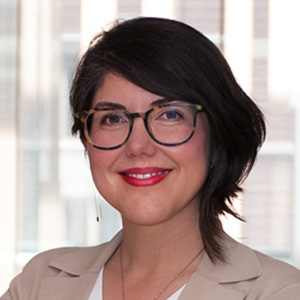
Diana Páez
Senior Director, Energy & Mobility
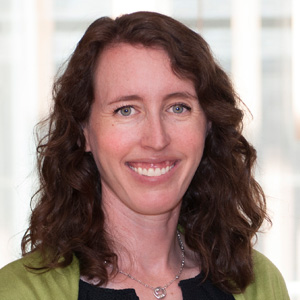
Dana Gorodetsky
Program Manager, Energy
Time: 8 AM EDT / 3 PM EAT / 5:30 PM IST
Date: Tuesday, April 16, 2024
Location: Zoom
Private sector innovation is a cornerstone of the efforts to bring clean cooking to the over 2.3 billion people worldwide who presently lack it.
The Clean Cooking Alliance (CCA) has supported over 25 clean cooking companies through its Venture Catalyst program, which helps firms attract investors, and grow their leadership and technical capacity to scale. Supported companies like BioLite, BURN Manufacturing, KOKO Networks and Sistema.bio have brought different product and business strategy innovations to the forefront. These include high-tech solutions like electric induction cookers, new fuels such as ethanol, targeted marketing, and business model solutions such as special purpose financing vehicles, carbon financing, and pay-as-you-go customer financing mechanisms.
The April 16 discussion, “Front Burner: How Business Model Innovation is Driving the Clean Cooking Industry,” will be hosted by the William Davidson Institute at the University of Michigan (WDI), and will feature panelists from CCA and these four trailblazing clean cooking companies with operations in multiple countries. Panelists will share their strategies for growing market size and scale, as well as barriers and enablers to implementing innovation. To learn more about the state of the clean cooking industry, click here for the CCA’s 2023 Annual Report.
WDI is supporting the learning objectives of the Clean Cooking Alliance Market Strengthening Program by developing innovative methods to measure the effectiveness of market strengthening interventions. The Institute is providing programmatic and data support, informing programmatic adaptations and pivots, and contributing to knowledge products targeting clean cooking enterprises, funders, policymakers and other stakeholders.
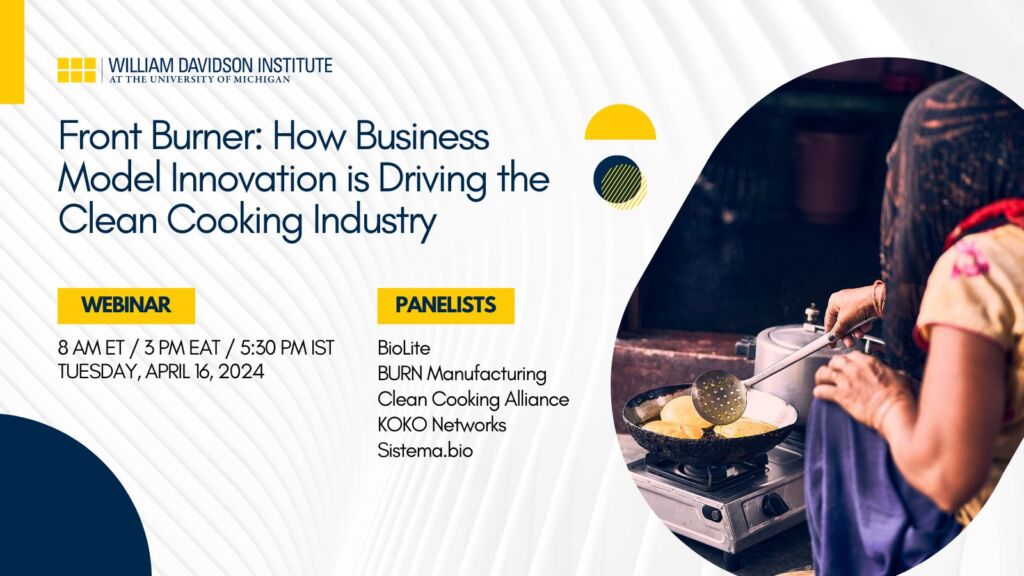
Time: 4 PM EDT
Date: April 3, 2024
Location: Blau Colloquium, 5th floor of the Blau Building at the Ross School of Business
wahu! is the first Ghanaian brand to produce electric vehicles domestically. The electric bike (e-bike) startup brings together local talent and experienced automotive engineers and designers from global automakers, including Audi and BMW.
In the talk, “How an E-Bike Startup is Looking to Change the Way Africa Moves,” Valerie Labi, co-founder and CEO of wahu! Mobility Ltd. will discuss how the business is unlocking new possibilities in low-emission mobility solutions, particularly in urban markets. By locally designing and manufacturing connected EVs for Africa and the wider world, wahu!’s value proposition includes ease of transport, a path to vehicle ownership and a gateway to sustainable employment through mobility services.
Labi is an entrepreneur who also served as Ghana country director for nonprofit iDE, International Development Enterprises, which focuses on market-based solutions in agriculture and water/sanitation. She received her Bachelor of Science degree in Economics from the University of Southampton and her Masters of Studies from the University of Cambridge in Sustainability Leadership.
This event is open to the public and sponsored by the William Davidson Institute at the University of Michigan (WDI) in partnership with the African Studies Center at U-M’s College of Literature, Science, and the Arts.
Attendees are encouraged to register (see below or click here) and submit questions in advance. Light refreshments will be served.
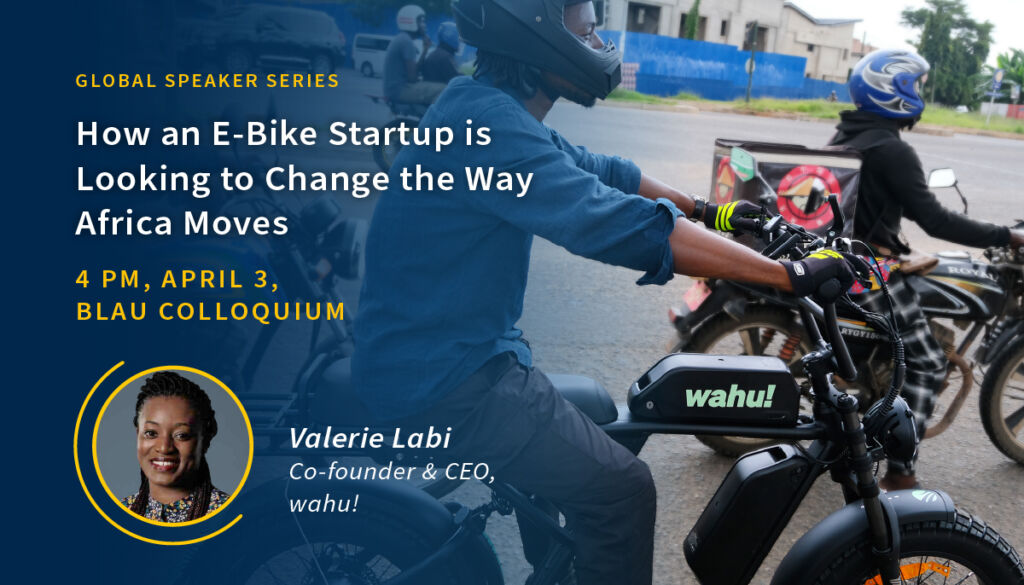
![]()
![]()
With support from the U.S. Mission Mexico Public Diplomacy Section, WDI is implementing an academic partnership focused on vehicle electrification training, research and innovation to support higher education institutions in Chihuahua, Mexico. Through the partnership, a select group of faculty in engineering disciplines from the state of Chihuahua will acquire or deepen technical skills related to vehicle electrification technology.
WDI is supporting the learning objectives of the Clean Cooking Alliance Market Strengthening Program by developing innovative methods to measure the effectiveness of market strengthening interventions. We are providing programmatic and data support, informing programmatic adaptations and pivots, and contributing to knowledge products targeting clean cooking enterprises, funders, policymakers and other stakeholders.
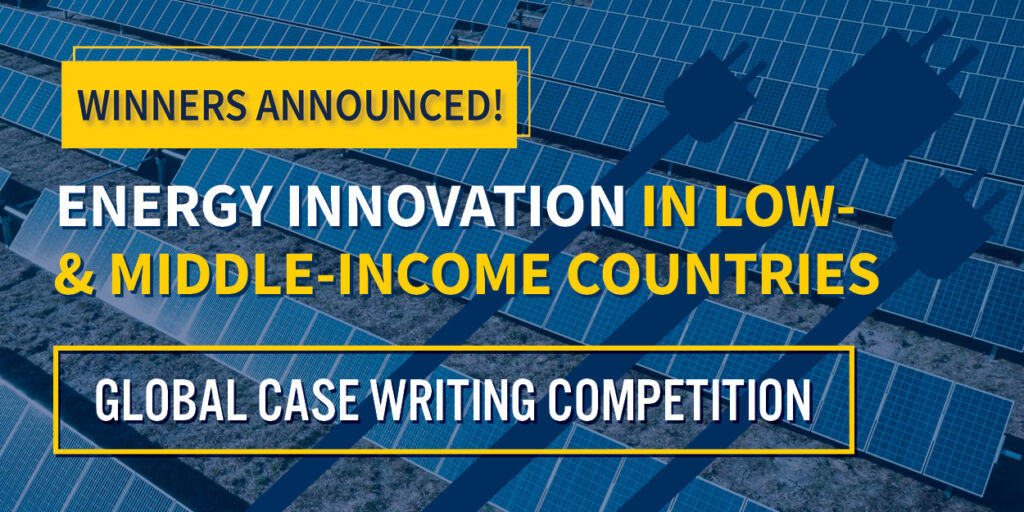
According to the International Renewable Energy Agency, 733 million people are currently living without electricity. Most of those off-grid populations are in low- and middle-income countries (LMICs), often cooking or heating their homes with fuels that are harmful to their health and the environment. At the same time, global investments in renewable energy are at an all-time high, creating a new generation of entrepreneurs and businesses.
It’s in this environment that the William Davidson Institute at the University of Michigan (WDI) launched the Energy Innovation in Low- and Middle-Income Countries Global Case Writing Competition. Administered by WDI Publishing, the contest sought out new voices and expertise in the form of business case studies focused on energy solutions in emerging markets.
Case studies encourage current and future business leaders to expand their education, question their assumptions and discover innovative strategies. The development and use of these cases will help accelerate global understanding of how businesses are implementing energy technologies and innovations in LMICs. The contest received submissions from 10 different countries and 14 universities around the world.
“It was very gratifying to receive submissions from so many different countries and institutions,” said Sandra Draheim, Manager of Case Publishing at WDI. “Clearly the clean energy challenge in LMICs is front and center within many academic institutions and other organizations globally.”
The top three winning cases feature businesses with energy at the heart of their operations, including new approaches to solar and wind energy.
“The energy sector is undergoing an incredible transition and this needs to be reflected in the types of case studies available for students who will be navigating these changes,” said Dana Gorodetsky, WDI Program Manager, Energy. “It’s exciting to see so many dynamic entries for the competition that reflect innovation, creativity and access.”
The energy sector is undergoing an incredible transition and this needs to be reflected in the types of case studies available for students who will be navigating these changes.
Dana Gorodetsky, WDI Program Manager, Energy
First place $3,000
Electric Moto-Taxis Innovation in Low-Income Countries: A Rider’s Perspective in Kampala
When he purchased an electric motorcycle, Sammy Kalunji – a self-employed microentrepreneur in Kampala, Uganda – joined the hundreds of low-emission transportation pioneers in the heavily polluted city at the end of 2022. Despite lower operating costs of the electric vehicle, known as an E-boda, Kalunji does not receive enough income to fully provide for his family. The case elaborates on four financial, operational, commercial, and social organization models and alternatives Kalunji must navigate so that he and his fellow E-boda riders can harness economic opportunities while spurring green urban mobility.
Authors: Nathalie Prime, Professor of International Business & Sustainability and Scientific Director of the Chair Responsible Innovation in Africa at ESCP Business School in France; Akil Amiraly, Associate Researcher at Ecole Polytechnique in France; Mansoureh Hasannia Kolaee, PhD and Post-doctoral Researcher at Laval University in Quebec; Peter Kasaija, Research Associate at Urban Action Lab, Makerere University in Uganda.
Paths to the Future of Solar Energy in Brazil
The case aims to put students in the role of the protagonist Sergio Araújo, CEO of SolarEnergy, to assess the company’s next steps amid the arrival of new investors. SolarEnergy provides installation and maintenance services for photovoltaic panels in regions of Brazil. With shifts in the market and new government tax policies at the beginning of 2023, Araújo faces new market dynamics and challenges as new investors seek to multiply annual revenues by five within five years.
Authors: Eduardo Russo, Post-doctoral Researcher Coppead Graduate School of Business, Federal University of Rio de Janeiro; Marco Simões-Coelho, Associate Researcher, Coppead Graduate School of Business; Ariane Roder Figueira, Associate Professor at Coppead.
Gigawatt Global: Electricity in Africa Fueled by the Power of Purpose
Gigawatt Global Coöperatief U.A., a multinational renewable energy company focused on the development and management of utility-scale solar and wind fields in emerging markets, faces a striking dilemma: the firm’s corporate social responsibility (CSR) activities may be limiting its efforts to bring clean energy to Africa. Gigawatt Global’s strategy is to partner with diverse stakeholders — energy financial entities, governments, development groups and other institutions — to structure renewable energy investments in emerging markets. As a mission-driven company, it invests significant resources into CSR efforts alongside each project it completes. The challenge for the company’s chief financial officer is determining the right balance between mission-fulfilling efforts worthy of investment, while also growing and thriving as a business in a market replete with uncertainties. The case presents conditions and potential decisions faced by the company’s chief operating officer trying to find the right balance.
Authors: Sheri Lambert, Associate Professor of Practice at Temple University; James Oldroyd, Associate Professor of Strategy, Brigham Young University; Narasimhan Srinivasan, Associate Professor of Marketing at the University of Connecticut; Lynne Sprugel, Adjunct Instructor of Management, University of Dallas.
Deeana Ahmed, Chief Strategy Officer at Our Next Energy (ONE). Ahmed holds a doctoral degree in neuroscience and nutrition from Columbia University, a Master of Science and Master of Public Health in policy from Tufts University, and a Bachelor of Science from the University of Michigan. Ahmed is a published researcher and policy analyst who has conducted large policy evaluations for the NYC Department of Education, managed grants for a Silicon Valley non-profit, and owns and operates a start-up education technology firm. Ahmed is an alumnus of the University of Michigan Solar Car Team, where she led the development of the nationally and globally ranked solar car, InfiniUM’s battery pack.
Kate Gasparro, Director of Land Development and Sustainability at Bedrock Detroit. Gasparro is responsible for planning and implementing the company’s sustainability and district infrastructure strategies, lowering the carbon footprint of the built environment in Detroit and Cleveland. Gasparro earned a BS in Civil Engineering from Clemson University. She went on to earn an MA in International Policy and PhD in Civil and Environmental Engineering from Stanford University.
Daniel Vermeer, Associate Professor of the Practice; Executive Director, Center for Energy, Development, and the Global Environment at Duke University’s Fuqua School of Business. Vermeer has spent three decades working on the world’s “grand challenges”, including water scarcity, climate change, and ocean sustainability through diverse roles in academia and business. His areas of expertise include sustainable development, business innovation, climate change, water management, and food systems. Prior to Duke, Vermeer led Coca-Cola’s water sustainability initiative and has also worked with leading companies and organizations including Google, Walmart, GE, Tesla, World Wildlife Fund and the UN Global Compact.
About WDI Publishing
WDI Publishing produces and distributes high-quality, cutting-edge business cases and other teaching materials for business schools around the globe with more than 700 cases in its collection reaching 800 universities and institutions around the world. Learn more about the case collection and future competitions at wdi-publishing.com.
The transition to zero-emissions vehicles (ZEVs) presents big challenges to workforces, including retraining existing workers and developing new talent pipelines. The technology powering ZEVs also presents new opportunities for research and innovation, and higher education institutions play an important role in their development.
With support from the U.S. Mission Mexico Public Diplomacy Section, the William Davidson Institute at the University of Michigan (WDI) will implement an academic partnership focused on vehicle electrification training, research and innovation to support universities in Chihuahua, Mexico. Chihuahua is one of Mexico’s most industrialized regions and a hub for the automotive industry, and both the government and the private sector are investing in preparing the sector for the transition to zero-emission, electric vehicles.
Through the partnership, a select group of faculty in engineering disciplines from the state of Chihuahua will acquire or deepen technical skills related to vehicle electrification technology. This will include analyzing key industry changes and exploring academia’s role in developing new curricula and advancing innovation through partnerships with industry and other stakeholders. In addition, the program will facilitate connections with University of Michigan faculty and organizations across the Michigan mobility ecosystem. These connections will help Chihuahua faculty to glean insights from Michigan’s approach to developing talent and creating a EV knowledge network.
As is the case in many regions focused on the automotive industry, higher education institutions in Mexico face challenges aligning their academic offerings with rapidly evolving industry needs, as well as securing resources for research and innovation. In Michigan, the transition to electrification in the automotive industry is at the forefront of the economic, political and educational agenda. Several Michigan universities, community colleges and other players have moved quickly to develop a wide range of programs related to vehicle electrification. Greater collaboration between the U.S. and Mexico when it comes to training, research and innovation on EVs can play a role in supporting talent needs of an industry that is highly intertwined on both sides of the border.
“A robust EV talent pipeline will enable the transition to electrification,” said Diana E. Páez, WDI Senior Director, Energy & Mobility. “This project represents a new opportunity to promote increased training, research and innovation between educators, industry leaders and future employees in the e-mobility economy. We are grateful for the support and confidence of the US Mission in Mexico in this partnership.”
The program will involve up to 24 participants, including eight core faculty for the entirety of the program. This program will consist of virtual training sessions, an in-person training and study visit to Michigan, and a virtual showcase of ideas proposed by Chihuahua participants. In the final program component, participants will develop a collaboration proposal, a solution to a challenge they are facing, or an idea related to training, research and innovation on ZEVs that could be implemented at their host institutions based on what they have learned during the program.
The expected impacts of the program are enhanced understanding and strengthened ties between the U.S. and Mexico on the topic of electric vehicles, which can lead to improved technical skills for the workforce and further collaboration on research and innovation.
WDI will work closely with the Chihuahua Secretaría de Innovación y Desarrollo Económico (SIDE) and Instituto de Innovación y Competitividad (I2C) to implement the program. Several universities in Chihuahua have expressed interest in the partnership. Eligible universities will be invited to apply to the program, which is slated to begin this fall.
“Many of the products and services we enjoy today as consumers are the result of years of hard work and collaboration among educational institutions and industries. Zero emissions vehicles and the ecosystem to support them will require the same types of partnerships and a new generation of workers with the skills and competencies to succeed in this new industry,” said Fernando Alba, Undersecretary for Energy, Mining and Industry of the State of Chihuahua.
“We are confident that this program will help us address the current need for further training related to EVs to satisfy industry demand,” said Raul Varela, Director of I2C.
The project builds on previous work between WDI’s Energy consulting team and the Mexican State of Chihuahua. In March, WDI released the “Roadmap to E-mobility for the State of Chihuahua” to support the region’s shift to an e-mobility future.
About WDI
At the William Davidson Institute at the University of Michigan, unlocking the power of business to provide lasting economic and social prosperity in low- and middle-income countries (LMICs) is in our DNA. We gather the data, develop new models, test concepts and collaborate with partners to find real solutions that lead to new opportunities. This is what we mean by Solving for Business—our calling since the Institute was first founded as an independent nonprofit educational organization in 1992. We believe societies that empower individuals with the tools and skills to excel in business, in turn generate both economic growth and social freedom—or the agency necessary for people to thrive.
About SIDE
SIDE fosters and facilitates the economic development of Chihuahua, in coordination with economic actors, increasing the competitiveness of business through innovation, to generate wealth and employment, and enhance the quality of life for the people of Chihuahua.
About I2C
I2C is a government agency of the State of Chihuahua that seeks to strengthen and promote scientific, technological and innovation capacities, through strategic research, technological development, and innovation (R&D&i) projects and programs that provide solutions and improve productivity and competitiveness of the productive, social, public, and academic sectors of the State of Chihuahua.
Solagron is a Vietnamese company producing various types of microalgae using solar power. A team of MBA students identified priority markets and developed marketing recommendations for this company’s new line of human consumption products, based mainly on spirulina production on a large scale.
Powertrust connects corporate climate leaders with renewable energy projects in emerging markets by facilitating the issuance and sale of renewable energy credits (RECs). A team of MBA students worked with Powertrust to analyze the current interactions and potential market in Ghana.
